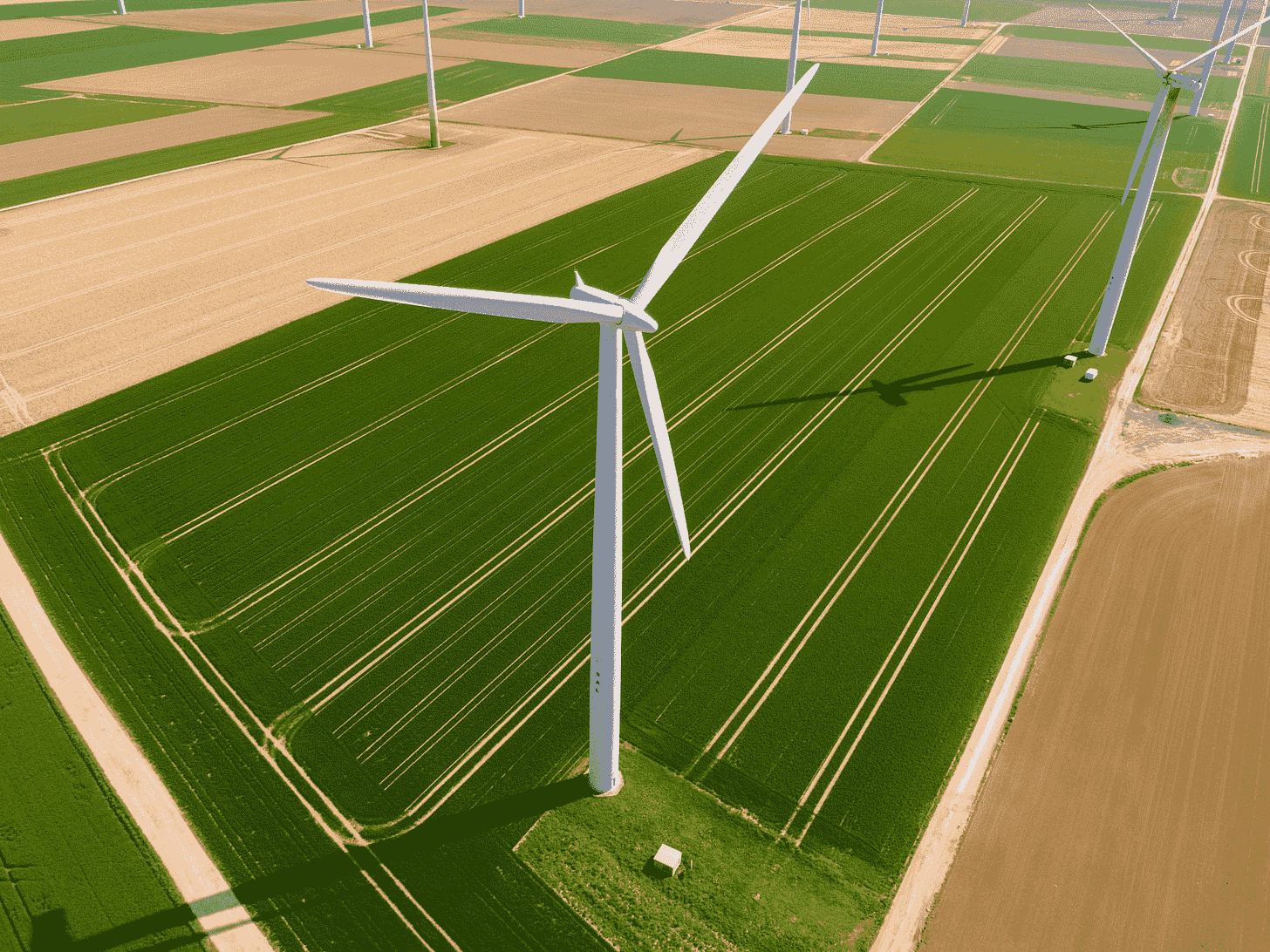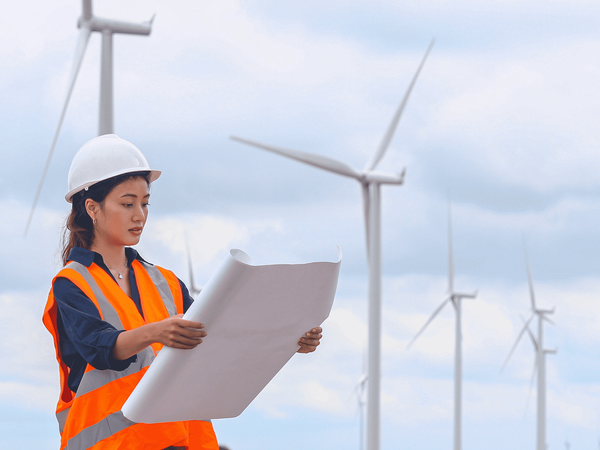Revolutionizing sustainable textile hub with a material exchange Marketplace

Sara Piccinni Leopardi- Green Entrepreneur
Sara Piccinni Leopardi, the founder of Resrcle, shares her motivation to close the loop in the textile industry and build a platform that will serve the community, a place to educate and exchange networking events, and a marketplace for material exchange and resources.
Sara was born in Rome but was partially raised in California. Being exposed to two cultures has helped her embrace the beauty of an intercultural mindset and become adaptable. Sara is a licensed Environmental Engineer and a keen traveler who loves new challenges.
Tell us about yourself and how your journey to sustainable textile started.
I'm really a curious person. So, when it was time to decide about my Professional future, I chose civil and environmental engineering, focused on renewable and efficient buildings. From that moment, I started my way into sustainability because my Masters degree project was an experimental thesis where I would reconstruct a building with sustainable options, such as laminated structural timber and geothermal energy plants.
After I finished my study, I started working at a civil engineering firm as a tender proposal manager, but it never really clicked well, as I was put on projects that conflicted with my ethics. After a while, I decided not to put my knowledge, work, and time into something that is against my ethics.
Next, I went to London, where my brother was living, and found a job in the product designing of customized air ventilation projects. It was nice there but I still felt something was missing. My boss then, who I still consider my first real mentor said, ‘You’re really good! You need to go and do what you feel like you wanna do. Follow your dreams.’
So I came back to Italy and found myself volunteering for a local project that was all about artisans and designers coming together and showcasing and selling their products. That project was about four years during, which I coordinated the team, the finances, the resources, the location, and all the vendors. It was a huge work and in about three years and a half, we organized a national event that welcomed around 300 artisans and designers that would use discarded products, abandoned wood, or deadstock clothes.
Then the pandemic happened. At that point, I was reading an environmental journal about textile waste numbers and I was just shocked. I suddenly realized the void I was feeling inside for so many years in my life is lurking towards this idea and I had the power to do something about it. So I went to my campus at Talent Garden and started putting together the founding team and in six months a startup, called Recircle was registered in Italy.
So what exactly does Resrcle do?
I built Resrcle around an idea I had 10 years ago. I had imagined a physical hub where people would come, bring their dead stock, have a workshop, educate others, and could trade at the same time. Then in 2021, there's a pandemic and we talk a lot about digitalization now, so I asked myself— why don't we do it online? —So yeah, that's how Resrcle was born.
Currently, 87% of the world's textile waste is landfilled or incinerated, causing a major negative impact on the environment, society, and the whole economy. Our mission is to revolutionize the textile industry by enabling and connecting companies that wish to cut costs and eliminate waste.
Resrcle is developing a digital Platform to reduce the economic, social, and environmental impacts of textile waste, through a community and marketplace based on models of circular economy, sustainability, and valorization of secondary textile materials. The name Resrcle means the circle of resources— it's not all about materials but also about people and knowledge.
How far is your product from coming to market?
We wrote a project for a national tender and won it last year around May. I am currently waiting for the funds to come in. I'm really excited about this!
Team: Our team is already composed and we started building our community around the sustainability and innovation sector. I started networking and have met so many amazing people.
Marketing: We have a marketing team in place, but we are also currently working with Fernando Ureta (our CMO and growth advisor from 4ChangeMakers) and this amazing European-based ethical marketing agency, called Slow Fashion World. It's a women-led company and what they've been doing for the past 10-12 years is helping small to medium brands from the fashion industry to communicate ethically.
Pilot Platform: We also have UX research and design part and are currently working with an Italian software house to create the pilot of the platform.
Newsletter: Our newsletter educates and informs people about sustainable textiles.
Network/Communication: Currently the work is going on to establish the pilot for the marketplace for secondary, innovative, and biodegradable materials. So we're looking for producers, vendors, and other people that are in the industry that is at a point of transition. There are so many small or medium-sized companies in search of materials, but the cost is too expensive for them. We want to help these companies to transition and to understand that there is a demand.
Collaboration: We already have a social lab, KORE - part of Intersos24 that is working with us, collaborating, where we send designers that are working alone and want to scale their production. They work in this social lab with migrant women coming from all over Eastern Europe, and we help them with the material search as well.
What are your challenges at the moment?
Actually, in the past year, I felt the urge growing and that the people around me were feeling it so much. So, if you asked me six months ago, I would've said I feel alone but now that is not a challenge at all. I don't feel alone anymore. I have a committed team and partners.
People that have started collaborating with us a year ago and that are still here today but I am just going to need a couple of technical resources. I need to look into all my networks for people that are not only in the environmental field but also have a mindset toward sustainability.
And, the next challenge is always the funds. I am in Italy so this first funding was intense. I had to postpone a lot of goals. For me, the challenge right now would be to really find the right people that want to invest in the company at this stage and help us grow the team because I really am sure that what we're trying to achieve here is all about doing good to the people and the planet. So it is a challenge, but I'm confident and I will use my grown resilience and patience to kind of get there with no stress.
I've learned in the past years with meditation and trusting my gut that sometimes stress is not indicated because if you have that stress, you're not looking clearly at your road ahead.
So sometimes I step back and say, okay, this is something that now is not a good moment to do because maybe I will get to the level of stress, so I will not. And people understand, and this is kind of the way that I want to build my company.
What do you think is the future of sustainability?
I think that in a practical way and a market-wide sense, we are still behind on the achievements of the transition because, of course, there was also the pandemic and many crises are going on and things shift for that.
So if we're thinking about textile waste, there was an amount of textile waste before the pandemic went to Africa. Now it's like erased and that is not good at all but in the same sense, a lot of people are getting together and there is some really big movement. For example, Fashion Revolution is helping to gather a million signatures for the European Commission to sign and say we need to higher the wages of the people working in fashion.
I think there is a lot of potential when it comes to collaborations because it is still a really strong niche. I believe there will be some kind of legislation to act in, I'm thinking also about Italy—we're so behind on legislation, but the mindsets are. And I see the younger people, some 20-year-olds that are buying and sharing things. This is something amazing and I think that obviously with this new generation and with all the problems that are going around in the world, a shift is needed. We are gonna need 20-25 years in the economy to see the change but it is happening. So I'm confident that the change will come and I think it will be really clear in this decade.
So definitely I'm confident about the change in the transformation and also the fact where is the money going regarding investments because, at one point, you cannot go ahead and do the greenwashing thing. After all, people are not believing anymore in this. They wanna see the facts, they wanna see the truth behind products and companies. It's a long way, but we're gonna get there. I'm really confident about this.
Your tips for growing a company?
What I have learned is, you need to think not only about yourselves or your profit but how you can add value to others. You need to know what people want and how you can help them.
Once you have that, build a small team and have people around that have different skills and knowledge. They would help you build the project. It was intense for me too and I had some capability to bootstrap the project in the beginning but for anyone that is trying to build a company in a sustainability field, there are funds— go out and look for those funds. If you are not able to do that, find people who do this as a job. Definitely, they can guide you. I was also directed by a person who was into the tender business to see which one is good and would fit our project. I have given my sleepless night to this project.
Find out what is good for you or not and stick to that process. And trust yourself. You know, I would've never thought that the Ministry of Development would've said, ‘okay, circular economy, textiles, okay, let's give you 190k’.
So you need to trust yourself. You need to have a small team behind and the first thing to do is start talking to the people that you think you gonna help because that is the only way to develop your business.
Figure that out and be creative. I'm all about creativity, so if it's not that way, it's gonna be another way, and then be true to yourself. So that is a big, big tip that I would give because you have to go to bed at night and you have to wake up in the morning and you need to be true to yourself.
What are your plans for the next 5 years?
In the next 5 years, we are looking to our fully developed circular platform including services such as Education and Certification, an impact-driven digital aggregator to help the transition towards the circular economy in textiles and fashion.
In the long run, the Resrcle platform will help companies in different ways to reduce their negative impacts or to grow in their sustainability and inter-circular processes.
Follow Resrcle on Instagram and LinkedIn.
Visit previous interviews with other Green Initiatives.



